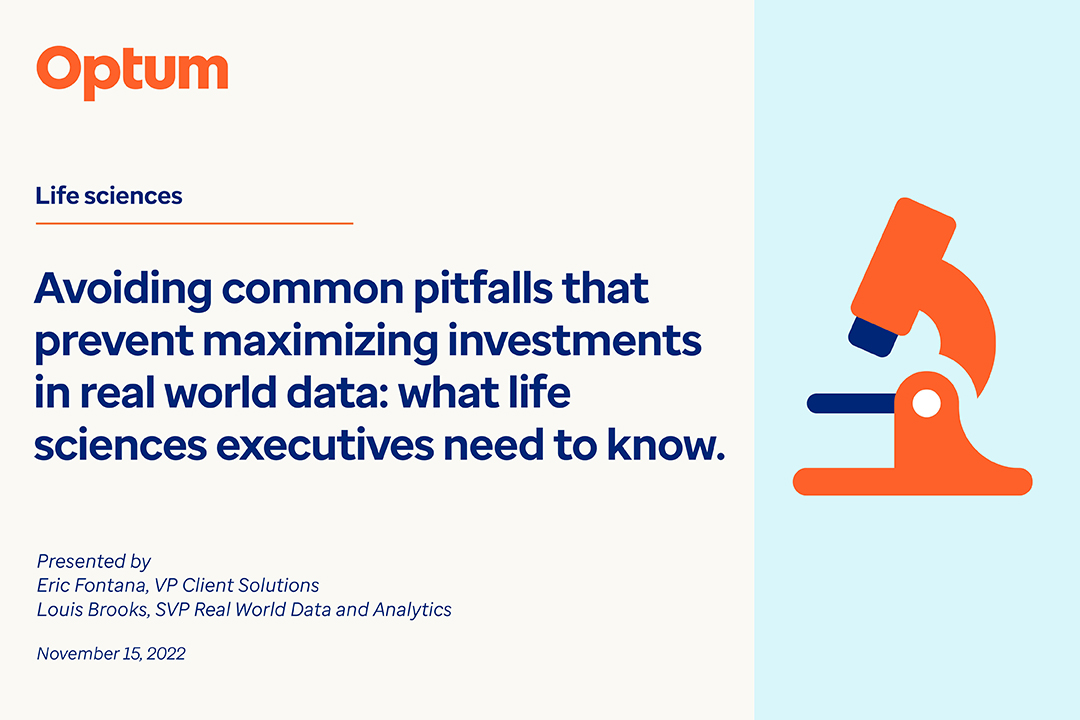Limited understanding of rare and genetic diseases
Rare disease research and treatment development is uniquely challenging given the limited understanding of rare and genetic diseases.
A lack of insight into the natural history of these diseases and their clinical manifestations are a hurdle to effectively addressing them. So, too, are missing efficacy endpoints and the underrepresentation of such diseases in medical coding systems.
Bolster insights with longitudinal data
De-identified, real-world data (RWD) features claims and electronic health record (EHR) data. It also encompasses data from other encounters such as labs, diagnostics and post-surgical care data to present an end-to-end view of patient care.
This robust, longitudinal patient view makes RWD an invaluable tool for stakeholders across the health system. Read how it creates a remarkable opportunity for researchers and product developers in the rare disease space to fill the data divide to power the development of effective treatment options.
Related healthcare insights
Video
Optum Life Sciences leaders break down common missteps when using RWD and how to create practical strategies to overcome them. Watch the video from STAT Summit.
E-book
Life sciences market experts from Optum and Advisory Board share perspectives on trends that will influence the future drug value chain.
Article
Cut through the noise of the Inflation Reduction Act of 2022 with key points aimed to help life sciences leaders leverage impactful data.



